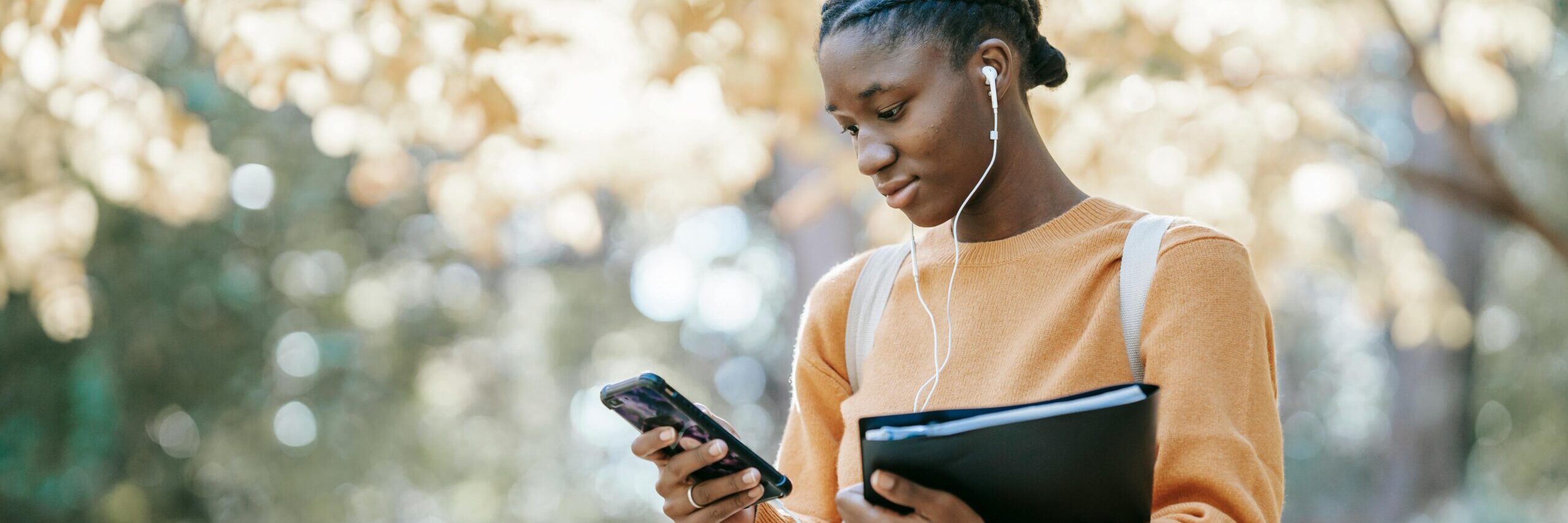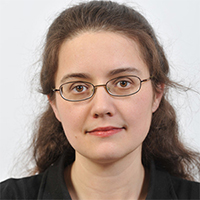
Professor Elizabeth Clare had long eschewed textbooks for her biology students before she discovered the magic of podcasting. Now, she’s made a mark as a pioneer in the science podcast space, offering students and other learners accessible, easy-to-digest lessons in biology.
For the last two years, the associate professor in York University’s Department of Biology in the Faculty of Science has been busy supplementing classroom learning with her podcast, “BioAudio.”

Her 33 episodes – hosted on BuzzSprout and available free on Apple and Spotify – cover topics from her biology classes and feature interviews with an expert or former student. The podcasts have been downloaded more than 18,000 times in 71 countries, with York students making up roughly 80 per cent of the listeners.
Her podcasting started almost by accident, Clare says. She was teaching in England and one of her classes became fascinated by transposable elements, also known as jumping genes. It’s an obscure topic, Clare says, and not her area of specialization, but she happened to have a friend who earned his PhD studying the topic. She asked him to speak to the class over Skype.
“We spent an hour peppering him with questions,” Clare says. “The students loved it.”
Next, Clare invited another friend – a scientific author – to talk to students about their work. The students then started asking for experts on various topics, and Clare began taping these talks. When she joined York in 2021, some of her students requested podcasts; Clare found that appealing because it showed students were driving a shift in learning and deciding how they wanted to access information.
“I’ve always been a bit frustrated by textbooks. I don't really like teaching from a textbook. It’s there if we need it, but students are looking for novel sources of information,” she says. “I like science the way I teach it. I like it as a story you can tell, and this just fits with the podcast format.”
In Clare’s first-year classes, students use both a textbook and the podcast; however, in upper-year classes, she’s stopped relying on textbooks and no longer assigns traditional text readings.
“Science, particularly at an advanced level, changes fast. Textbooks can’t always keep up when you are teaching new research stories.”
Teaching by podcast is a great leveller: students don’t have to buy a $200 textbook; podcasts are free; and it turns out, podcasts are helpful for students with specific learning disabilities, Clare says.
One student told Clare, “I simply can’t sit down and read a chapter of a text. But I can put this on a loop and ride my bike.”
“The funny thing is the students really love it. I thought they would find it fun. It's fun for me to make,” Clare says. “But I didn’t think they would come to rely on it the way they do. What I had not anticipated was the number of students, in that first year where I really got going with it, who came up and said, ‘You don't understand, this is an equity issue.’”
Other student feedback has been extremely positive, Clare says, and they continue to request more content. Some have even offered to help make more episodes.
Christian Nakla is one of those students. He’s a fourth-year biology student who was in Clare’s third-year biology class on evolution where, says Clare, he became known as the “Question Guy” for asking so many questions. He helped create a podcast episode on reproductive barriers and isolation for Clare’s first-year biology class. The episode explains how reproductive barriers prevent interbreeding between populations.
Nakla says making the podcast was rewarding. He is particularly pleased that BioAudio is accessible for non-students and says because it simplifies complex scientific concepts the information is easy for beginners to understand.
“I think this is a very noble effort to bring this sort of knowledge to students but also to people who are not necessarily enrolled at York University in science,” he says.
Encouraging students to be enthusiastic about science is part of what drives this effort for Clare. And it’s working.
“Apparently, last year, in my third-year class, there were groups of students getting together on Friday nights and having podcast parties.”
She’s witnessed first-hand how podcasting, as a resource, is growing. Recently, Clare received an email from a professor in another country who said she’d discovered BioAudio and asked to use the podcast as a teaching aid.
“OK?” says Clare. “It’s great. I’d love for others to find it valuable. When I got the idea for this, I figured there was already something available. I went looking, but there was just nothing in the podcast world on this topic. So, I had to make it myself. But if I’ve now filled the gap for someone else, that’s really cool.”
This week’s episode is “Fossils, Rocks and Radioactive Clocks.” It explores how scientists date ancient events through a discussion with mammal paleontologist Mathew Jones and can be found here or free on other podcast platforms.
With files from Julie Carl

